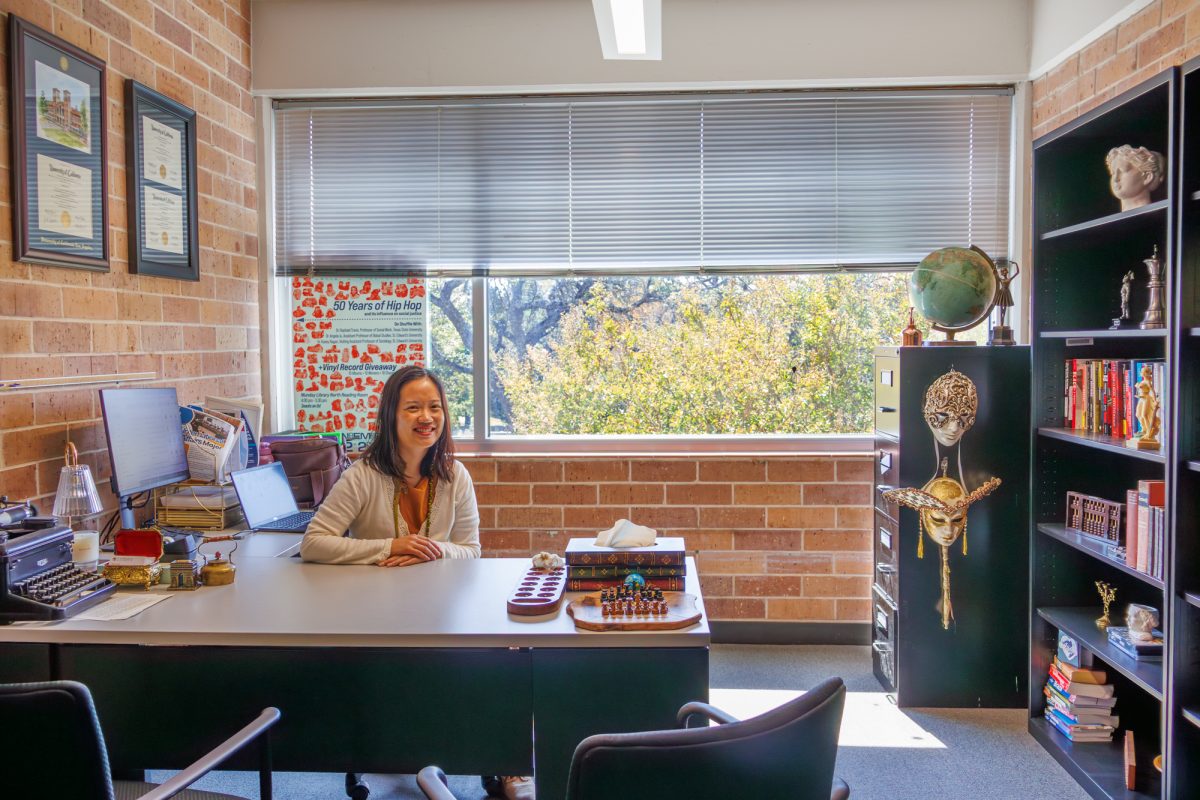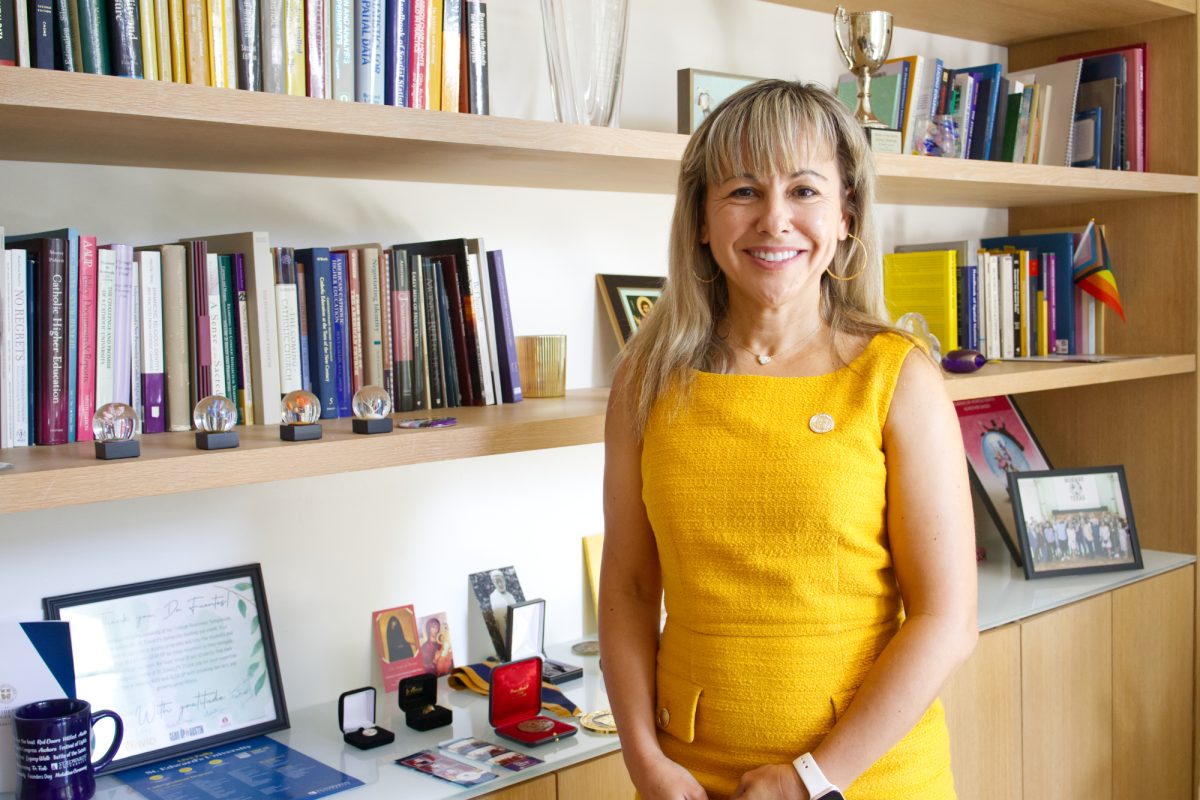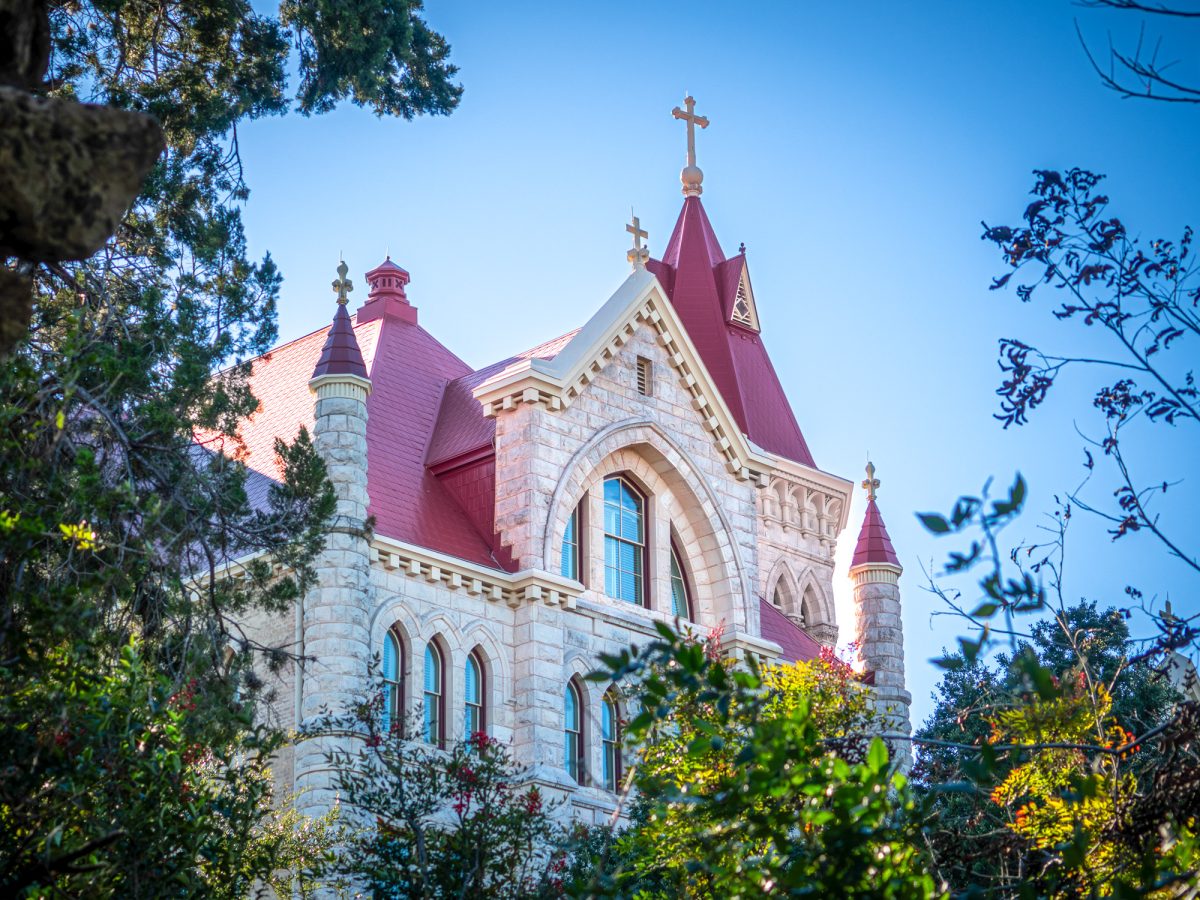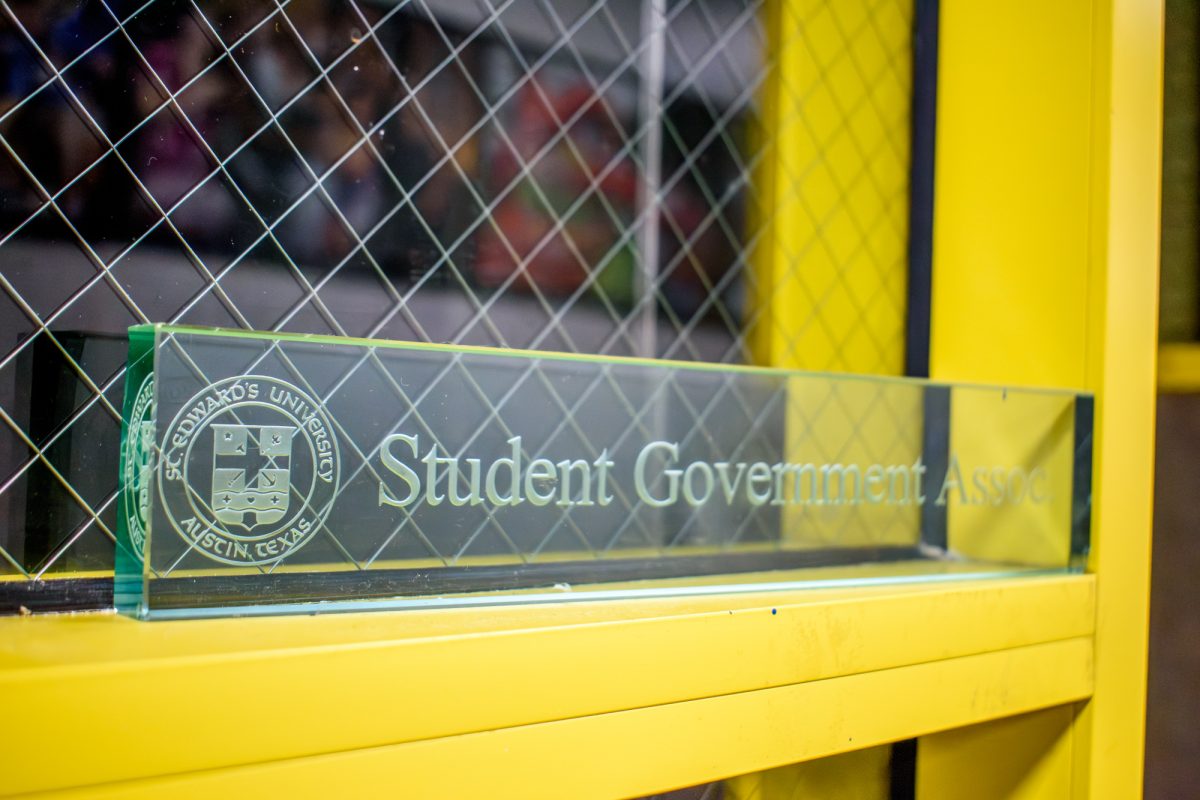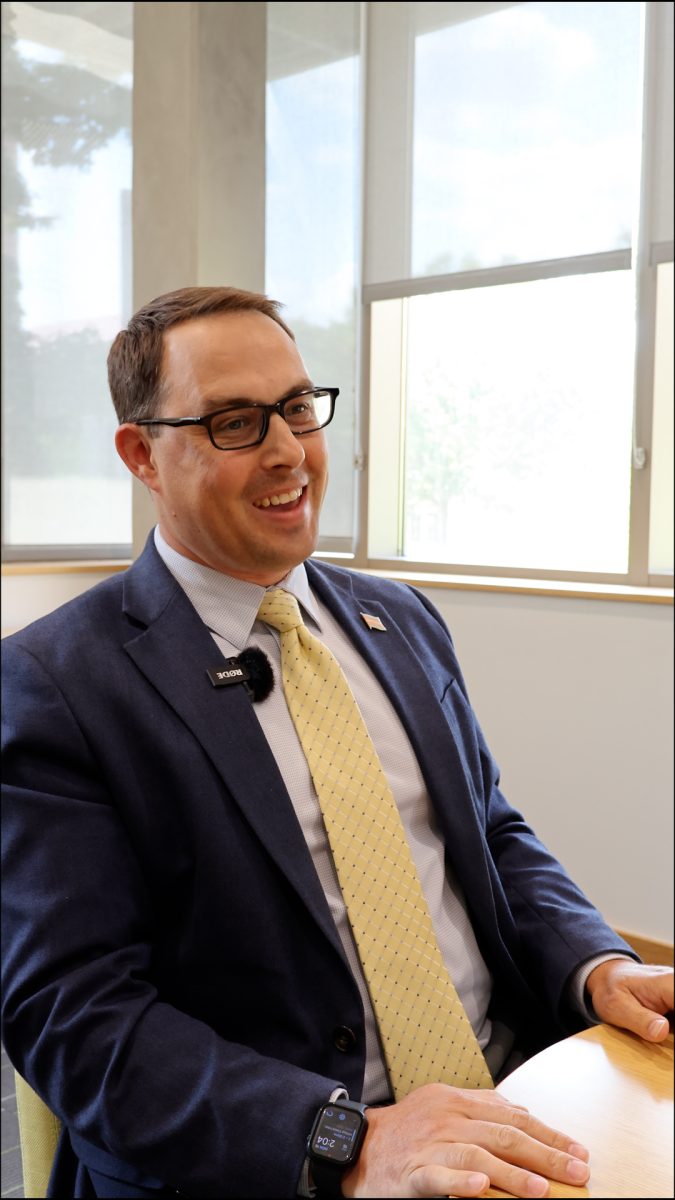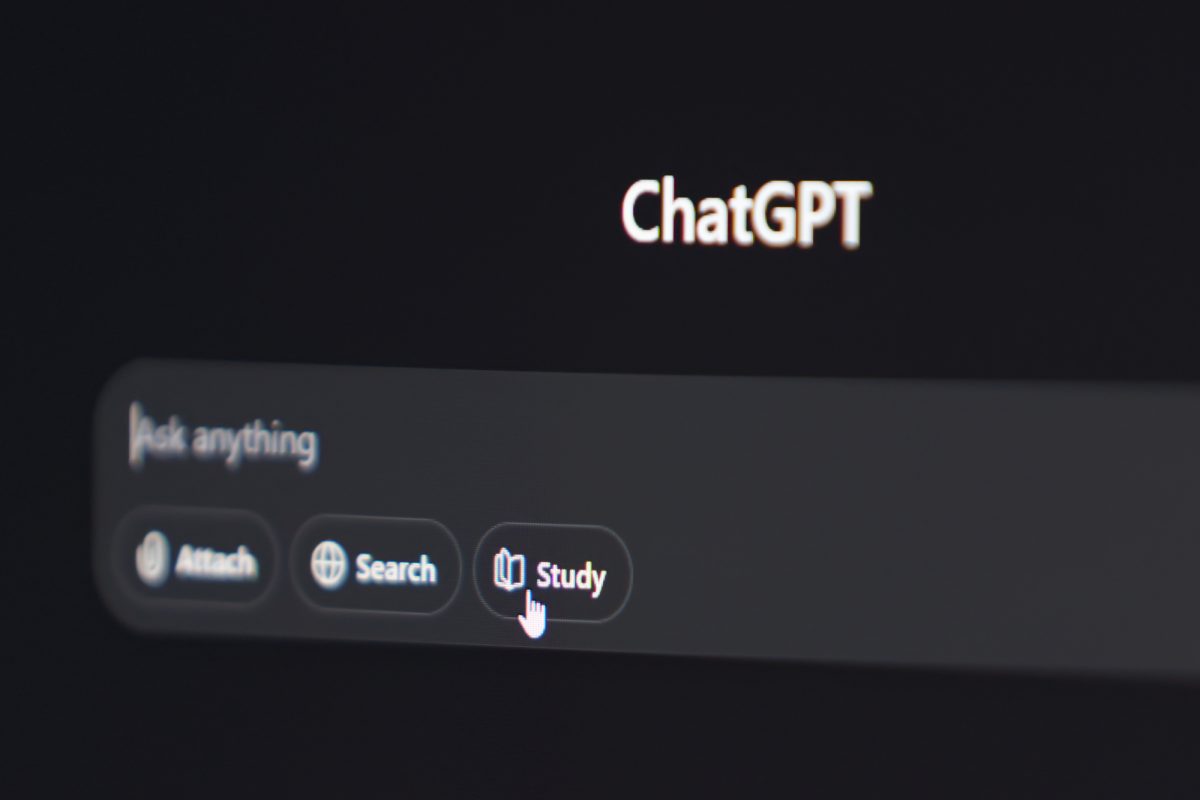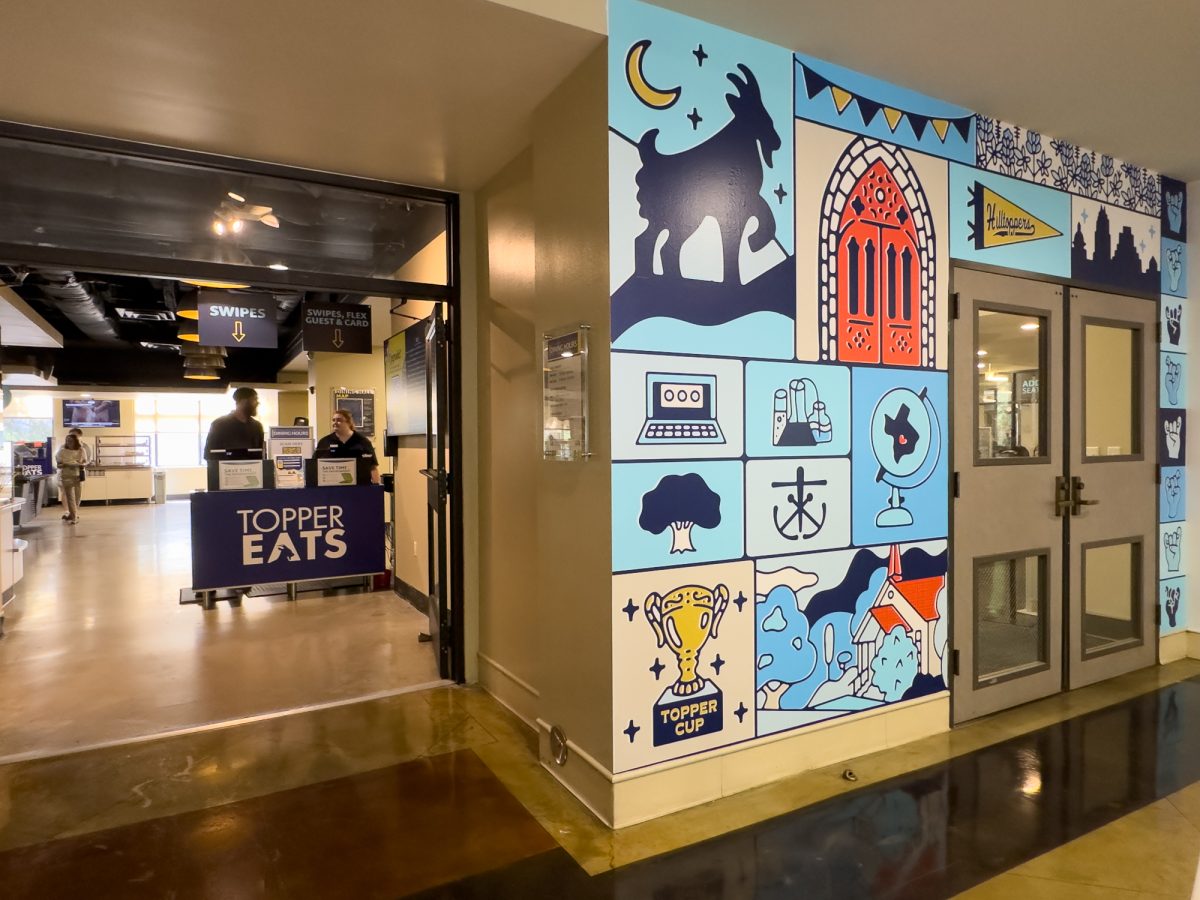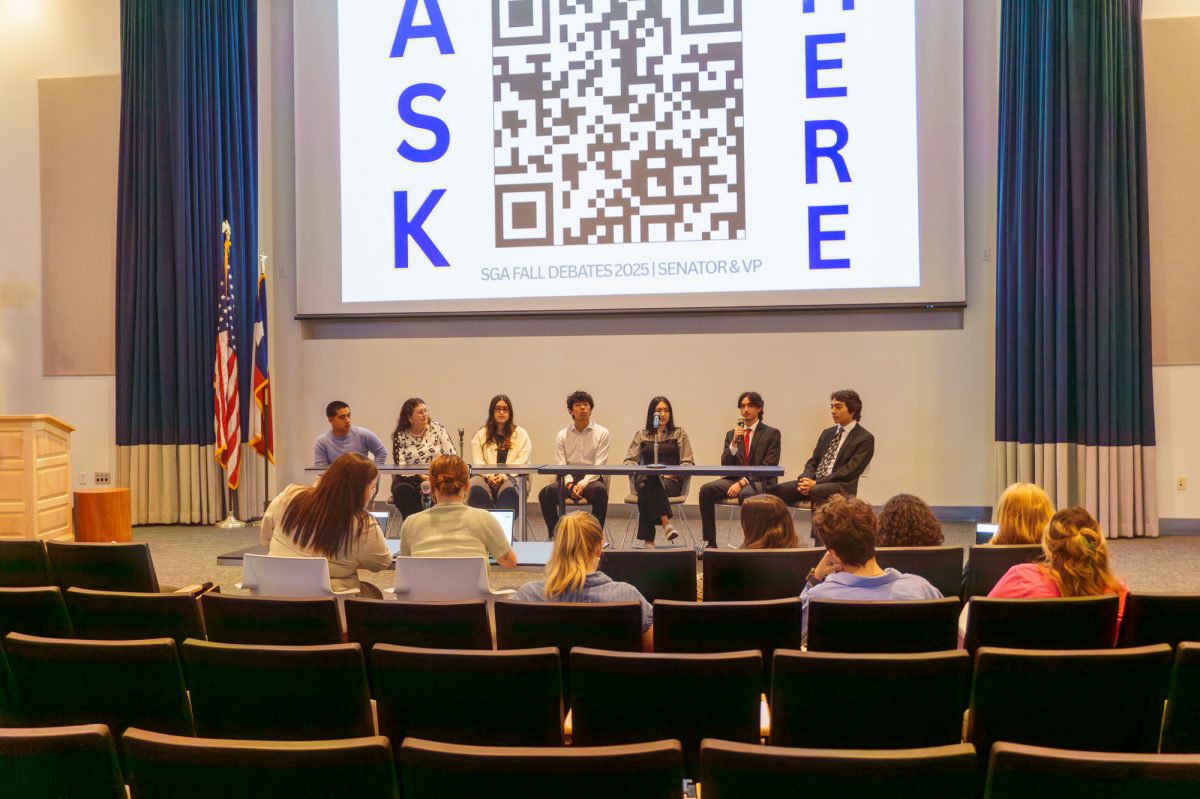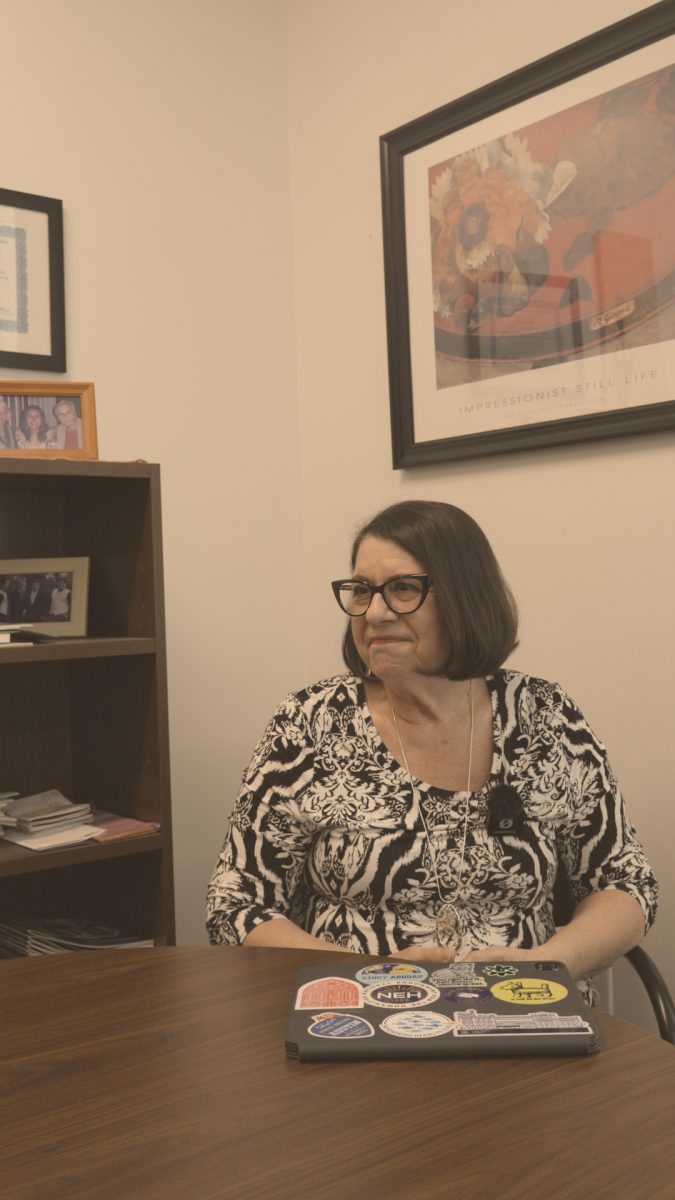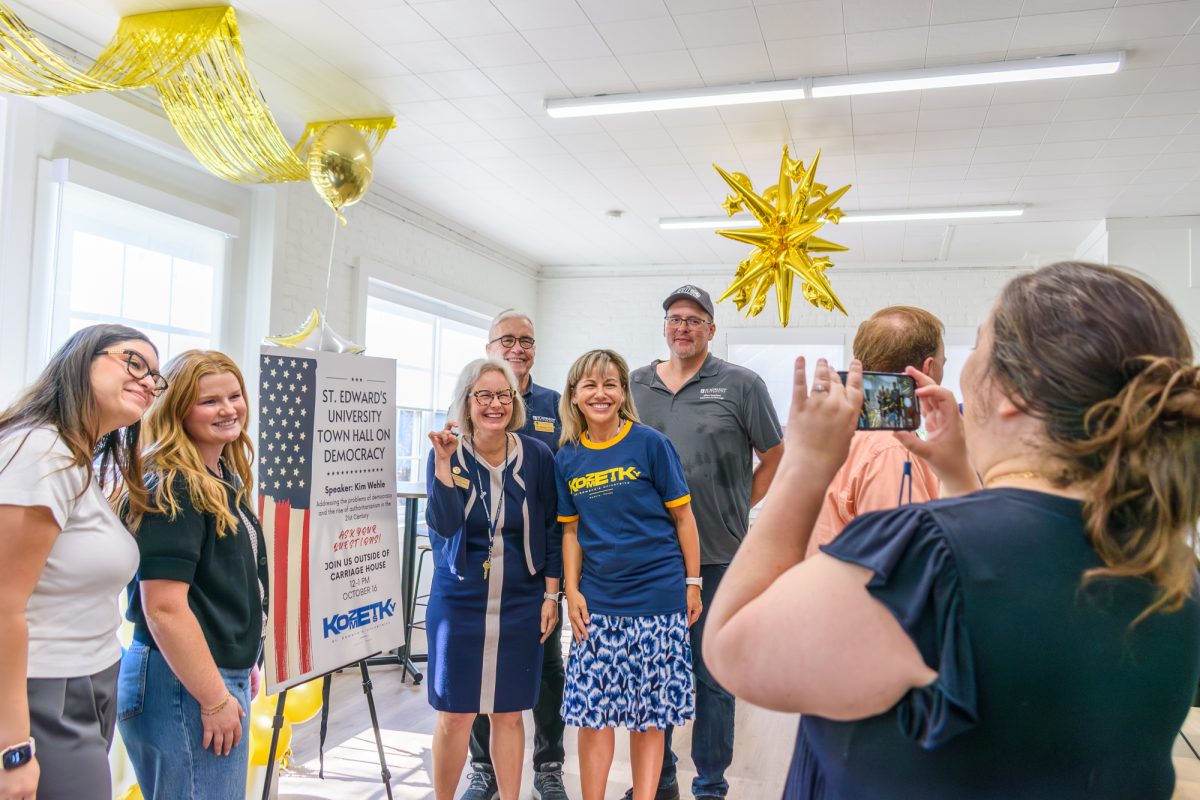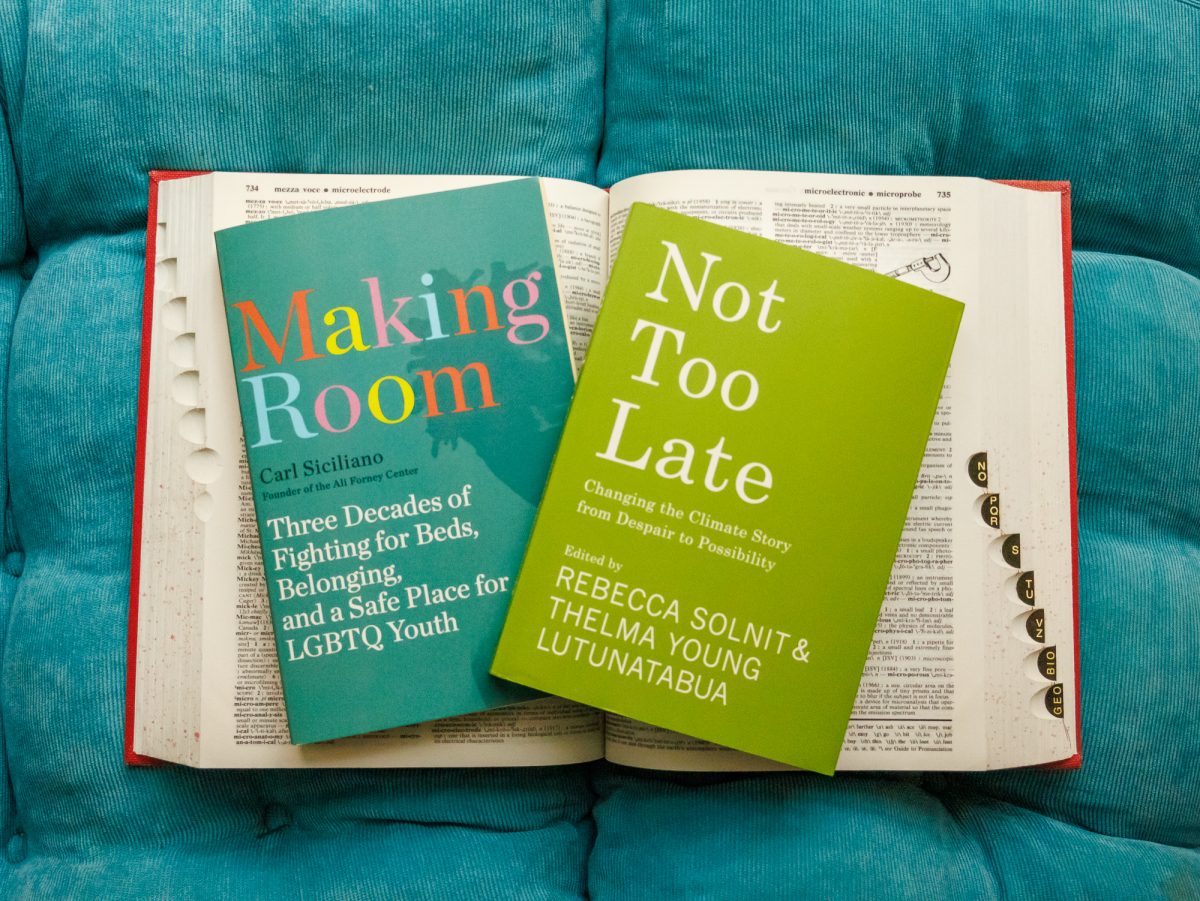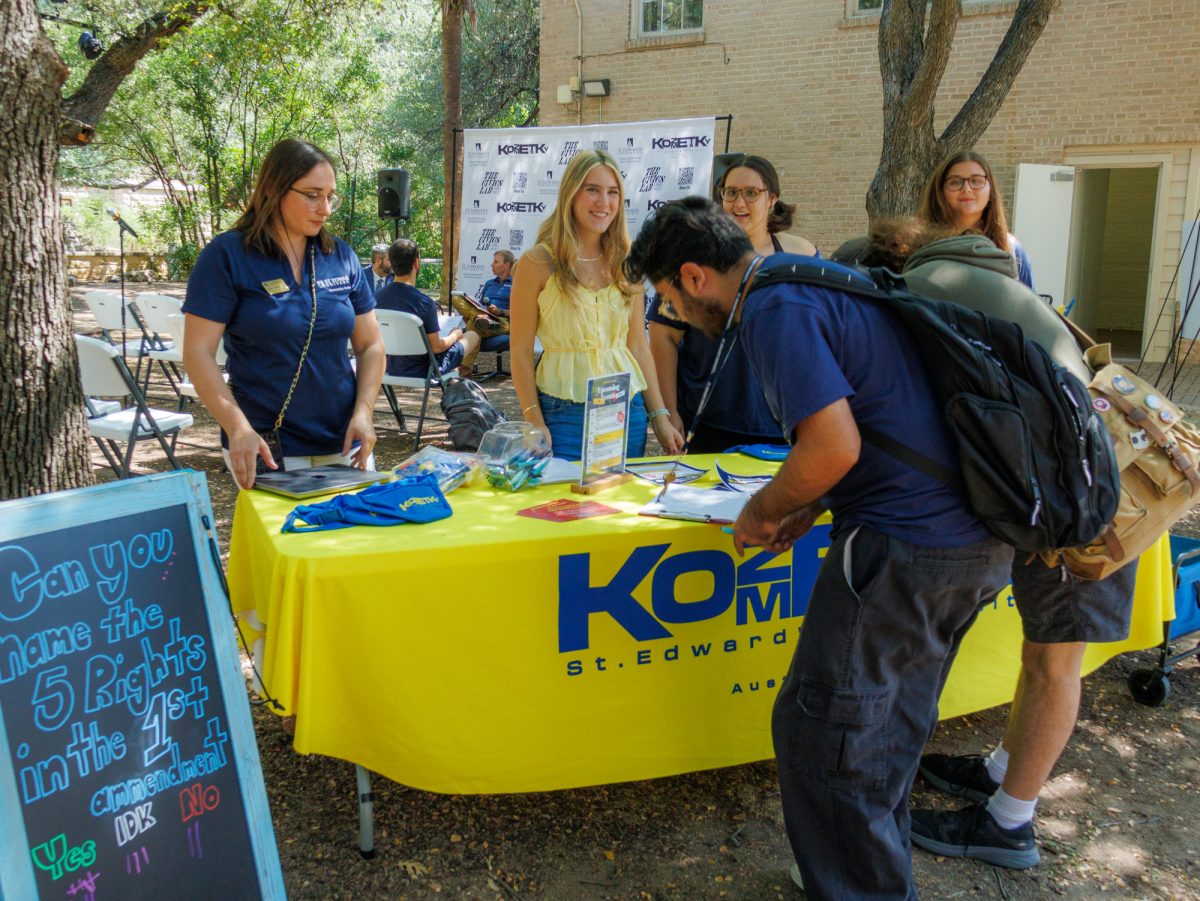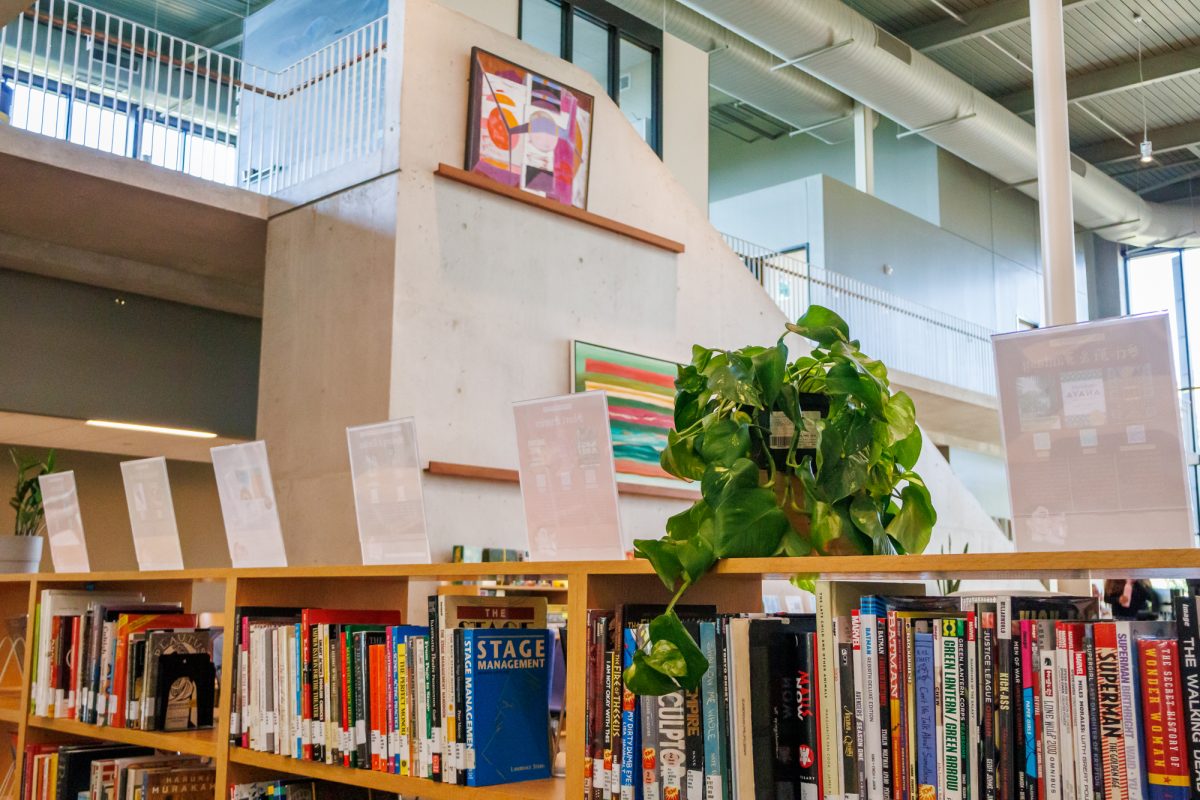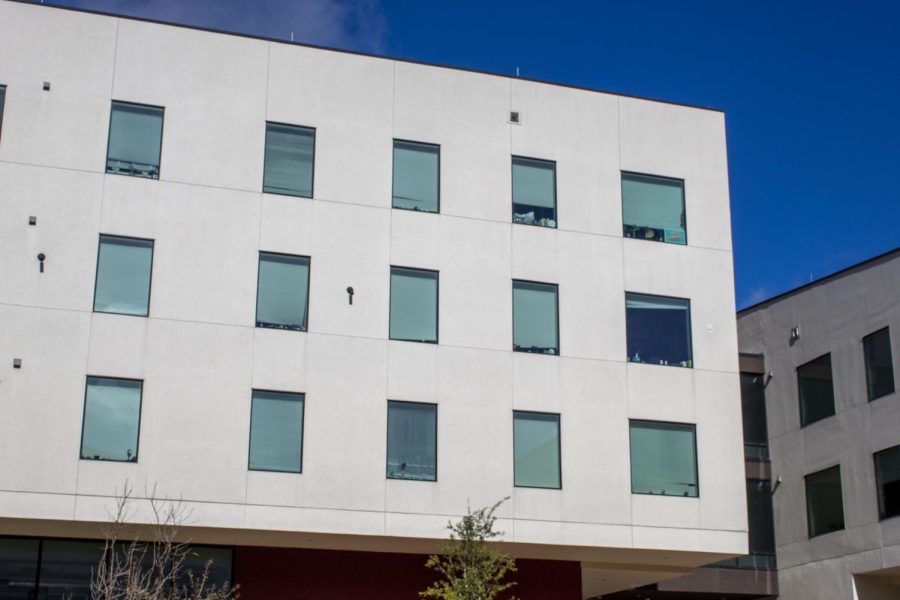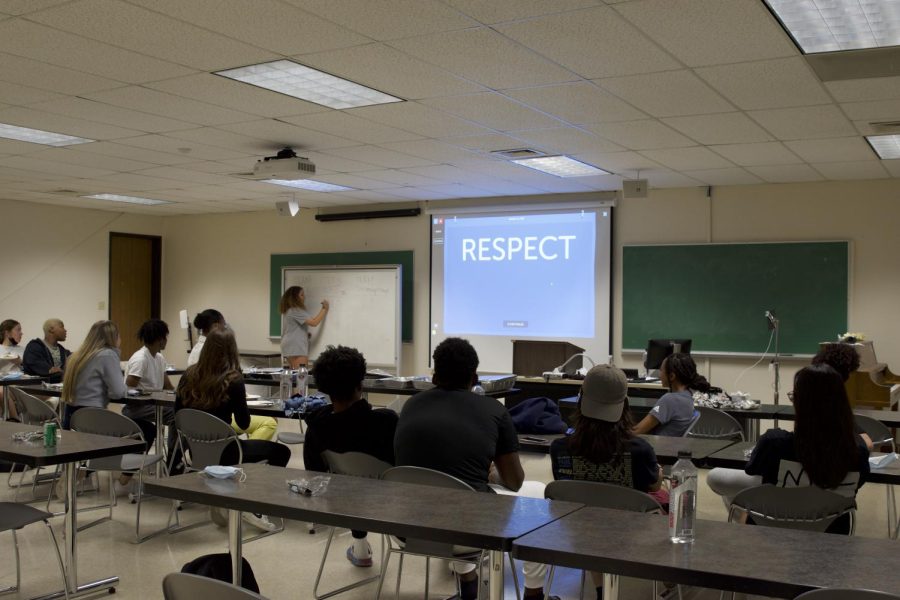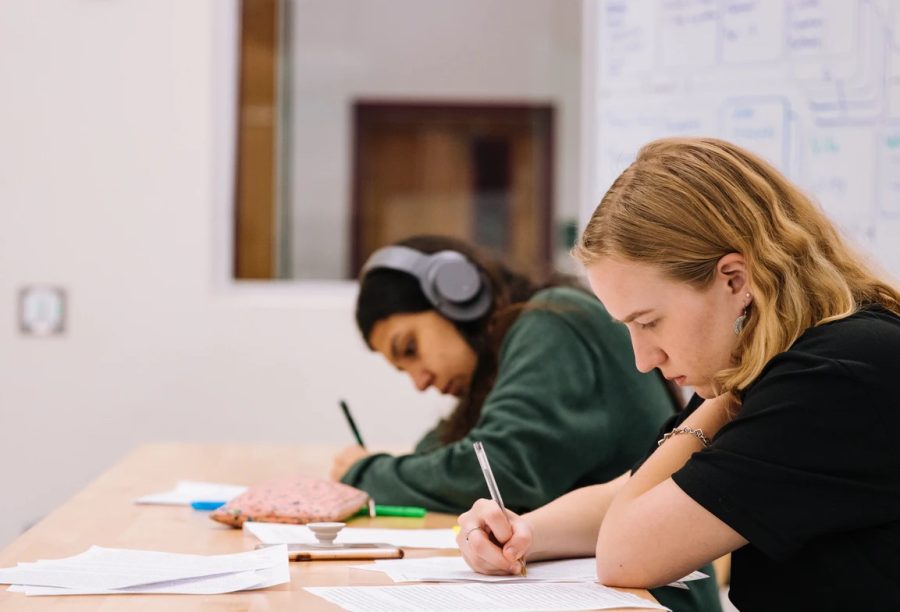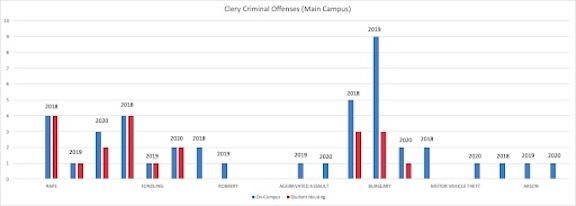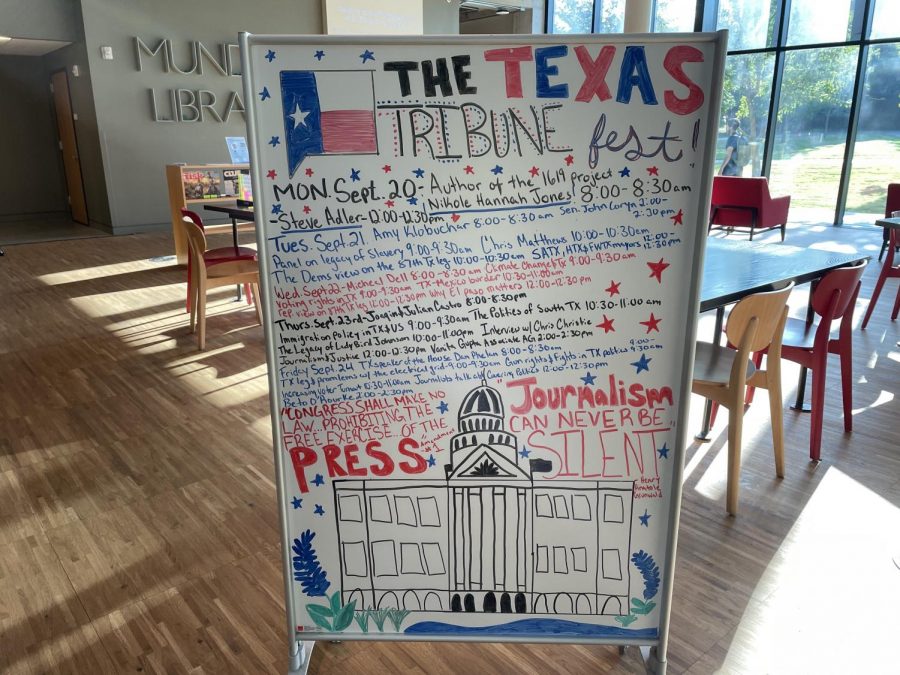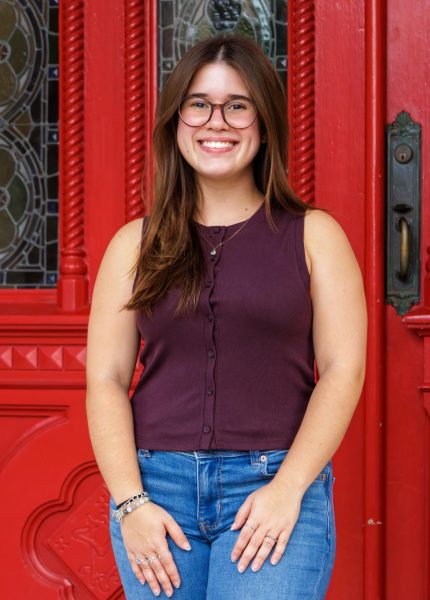Hilltop Views reporters Anna Pratts and Nicole Williams-Quezada sat down with interim dean Mity Myhr of the School of Behavioral and Social Sciences (BSS) to discuss her professional journey at St. Edward’s, her transition into her role as dean, the value of a BSS degree and its correlation with the university’s Holy Cross mission. This interview has been edited for length and clarity.
Tell us about your background and what brought you to St. Edward’s.
I have been serving for the past few years as an associate dean, and I have been at St. Ed’s for almost 25 years. I actually went to graduate school at UT and adjuncted here a little bit in the late ‘90s. I started teaching here part-time in 2000 and then came on as a tenure track faculty member in 2003.
What initially drew you to come to St. Edward’s? Was it the connection through teaching in graduate school, or did you feel compelled to the mission or something specific about St. Edward’s?
I went to a small liberal arts college, and while I was in my Ph.D. program, I knew that I didn’t want to teach at a large institution like UT. It’s a lot of fun, but I really valued my experience in a small school, working with faculty closely, getting to know my peers really well, so I knew I wanted a small and mission-oriented university. As I started teaching here, and got to know faculty and students and became more familiar with the mission, it really fit with me. I was really grateful that I could start teaching here full time and make a career of it.
You worked here as a history professor before and you’ve served as associate dean. What was the transition like into your role as interim dean and what have you learned in this period?
I’ve been an associate dean for a while, which means that I taught two classes and then did administrative work for the other part of my job. I knew most of the procedures, processes and policies. I’ve been around a while, so I had the sort of institutional knowledge and connections across campus from having worked with my fellow associate deans and other faculty on committees. So partly I was prepared, but being dean is a much broader position. It’s a lot more meetings, but it’s also thinking about the school as a whole, trying to think strategically about going forward and partnering with chairs to think about curriculum and what might be needed in the next couple of years. It’s a lot broader, and it’s been a real learning experience. I really enjoyed serving at this level and trying to have time to think strategically about where we’re going as a school, where our majors are going and how we contribute constantly to the university.
Do you teach any classes now as dean?
Not this year, so it has also been strange not to be in the classroom.
Do you miss it?
I do. You go into this business because you want to be in the classroom and because you care about students and their development. You go into this because you’re passionate about your material, right? I’m passionate about history. I’m an early modern European historian, a women’s historian, so I enjoy talking about that with students and reading about it, but I also appreciate that helping other people do their jobs better has been really fun.
How would you describe BSS in three words?
Energetic, thoughtful and experiential.
How well does BSS blend with experiential learning, and what are some of the opportunities that are offered to BSS students?
One of the ways of thinking about the social sciences, particularly in undergraduate courses, is that our courses provide information, knowledge and help build skills. As you proceed through them, they begin to give you opportunities to apply that. That happens on the small scale in classes when you do research projects and when you work in a group. When group work goes really well, it is amazing what students can do by combining their knowledge and working through an issue.
All of the majors in BSS provide opportunities for research, either in the classroom setting or one-on-one. All of the majors in BSS offer opportunities for internships so that students can take what they’re learning in the classroom and go out and develop professional experience and apply it with their learning. We also have lots of internships here on campus. For example, the Kozmetsky Center is part of BSS, and we have interns who help organize those civic engagement programs. All a student has to do is ask their faculty member about the opportunities available, and we’ll find something that works for the student and helps them meet their goals.
If you were to enroll in the BSS school today, what major would you choose?
I’d probably still be a history major, but when you ask about a minor, that would be much harder. I really have a greater appreciation now of how the combination of a major, either as a double major or with a minor, allows you to position yourself going forward. So I think, as students sometimes think about a major in the workforce, we really have to focus on the skills that you’re gaining in each of our majors: critical thinking, problem solving, the things that businesses out in the world tell us that they want. Think about what you enjoy as a student and then how you can create a combination that will help you advance or help you plan for the first couple of jobs or graduate school. But I would absolutely still be a history major.
What would your minor be?
I was a French minor in my undergraduate, I’m a French historian, so that was very practical for me. That’s really hard because my own research is very interdisciplinary, since I focus on religious women. My current project is the Sisters of the Holy Cross, a Holy Cross project in Texas. Religious studies is always very interesting to me, but so is sociology. A lot of sociological theory influences some of the work that I’ve been reading through.
I love the helping professions that are in this school, such as social work and psychology, and how they’re really focused on working with individuals or groups to improve — it really speaks to me and to the mission of the university in an interesting way. So yeah, I don’t know what I would do, more interdisciplinary. We do have an interdisciplinary minor where students can pull different things together, so I’d probably be an interdisciplinary scholar.
You’re a big proponent of studying abroad. What are some study abroad programs you’ve done here at St. Edward’s with students, and why do you think they’re valuable in a college education?
The best college education opens up opportunities and perspectives, and I think that study abroad is part of that. I benefited enormously from studying abroad when I was in college, so I appreciated how when you leave everything that is familiar and go and live in a different place, a lot of growing up happens. You’re all of a sudden introduced to different ways of living, different languages perhaps. It can be really life-changing for students to have that opportunity, and I know it was important for me.
St. Edward’s used to have a program in Angers, France, and I taught two summers and one semester when that program was going on. I worked a lot with international affairs majors for a while when it was called global studies, and I was actually an adviser for global study students. I really enjoyed helping them figure out where they wanted to go for their summer experience or semester experience. BSS is a school that has traditionally supported a great deal of study abroad. Eric Johnson, professor in the environmental science and policy area, is taking students on spring break to Costa Rica to do tropical research. We’ve had faculty in this school take students to all sorts of places around the world, and it’s great for faculty to get out and challenge themselves in new environments too.
We encourage students to study abroad, but there are other sorts of opportunities here in Austin to work with organizations that work with international populations. (Rodrigo) Nunes takes students to the Organization of American States. It’s a course, and the students go and participate in that. It’s kind of like a Model United Nations, but it’s an organization. So there are other ways of getting that kind of experience, but nothing beats committing yourself for five or six weeks to a city where you’ve never lived in.
What do you think sets BSS apart from other schools in the area?
What students get in BSS is a faculty who is committed to student success. We are committed to helping students develop the skills, develop the knowledge and build confidence to take advantage of all the opportunities here on campus, in the Austin area, or if you want to study abroad. I think that it is a personalized education, an education that challenges students in their own growth, development and to work a little harder, to reach a little further, to help them imagine who they want to be in the world. Learning is a lifelong process, and I think we as a faculty model that, and we encourage our students to think of it that way. I don’t think that’s unique to BSS, I think it’s something that we as a faculty here at St. Ed’s are really committed to. We do that better than any other institution here in Central Texas, or maybe in Texas as a whole.
Given the current political, environmental and economic climate, what do you think are the benefits of getting a degree in BSS?
I think the skills that a St. Edward’s education, and particularly here in the social sciences, will help students think critically about what is happening in the world and think critically through complex issues often for which there are no simple answers. I think we need to be equipped with our problem solving and critical thinking skills to be active citizens. We encourage students to educate themselves and to get involved around issues that are important to them.
At a state or a national level, we’re all called to vote. We’re all called to be active citizens. Part of what makes me appreciate this school and our mission is that I know that was important to Basil Moreau as the founder of Holy Cross, which was producing citizens who think deeply and logically with their brains, but also have a good set of values. Educating the hearts, right? If you don’t educate the heart and you only educate the brain, we can end up in some very messy situations. So we have to identify our values and then think about what is in line with them.
When we are equipped with these aspects and when we have empathy for our fellow citizens, when we try to understand their perspectives, I think that we will act justly and we will feel more centered and a little less sort of blown by the winds of change. It helps us take a little longer view or really think about what can I do to make a difference, or what can I focus on when there are other things that I can’t control.
What is your advice for freshmen coming into BSS this year?
Freshmen should talk to their professors and to their peers in and outside of class. Find out what sorts of opportunities are available to get involved on campus first. I think freshmen should take a little study break and go to a Kozmetsky program. They should go to a play, go hear a speaker, they should go to the career fairs. They should take advantage of the Career Treks to really begin to think about what interests and motivates them. They should work with their success coaches to find the right classes, but also talk to their professors about what is going to be offered in the spring or next fall. I think that they should go to a soccer game or a volleyball game and really take advantage of the full college experience.
Coming back to BSS, I think that they should try to be as well prepared for class as they can and engage with their peers and not let their fear of saying something silly or making a mistake stop them. This is where we grow and the only way we can grow is to learn from our experience. Be brave, be resilient.

